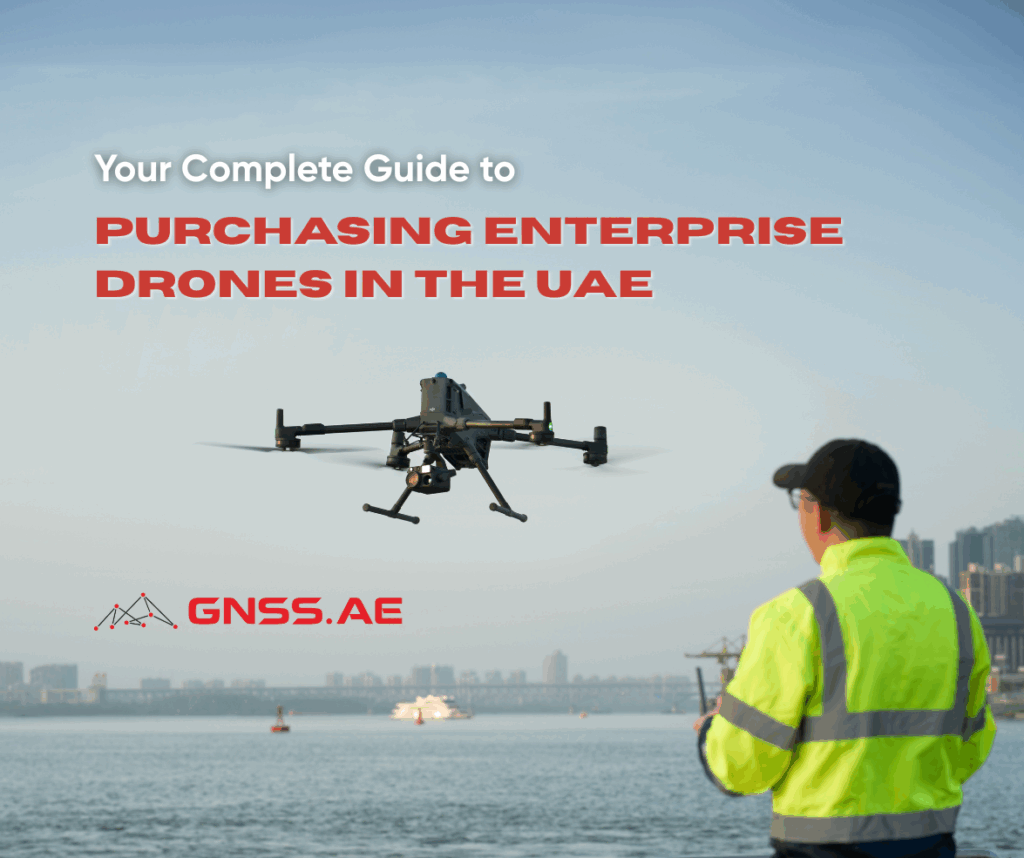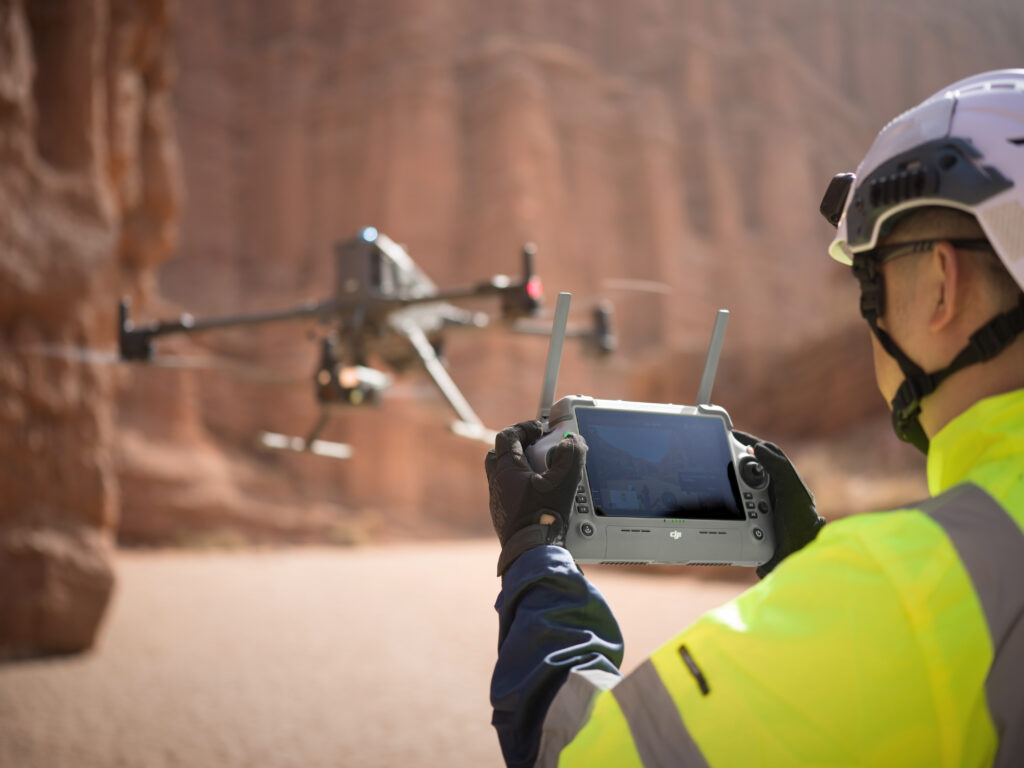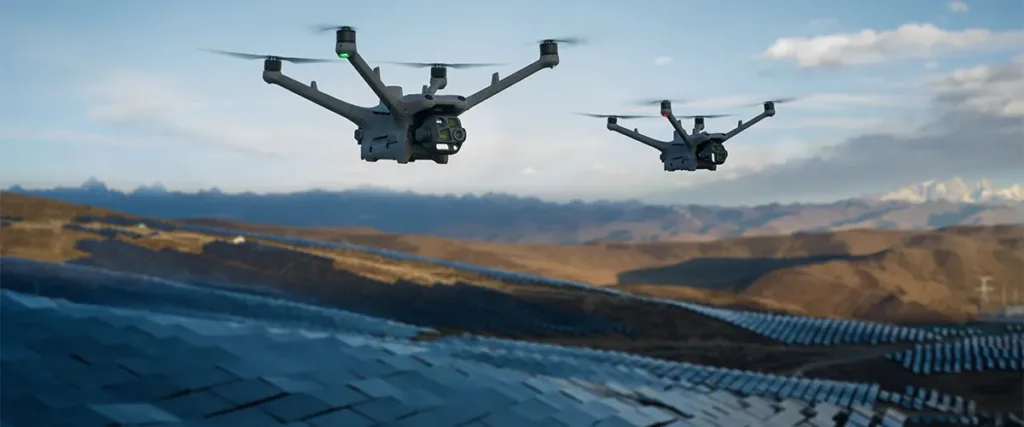
The commercial drone market in the UAE continues to expand rapidly as businesses across multiple sectors recognize the transformative potential of unmanned aerial systems. From construction site monitoring and infrastructure inspections to agricultural surveys and logistics operations, enterprise drones are revolutionizing how companies collect data, conduct assessments, and optimize their workflows.
However, navigating the drone procurement process in the UAE involves understanding specific regulatory requirements, technical considerations, and operational parameters that differ significantly from consumer drone purchases. This comprehensive guide provides business leaders and procurement professionals with essential insights to make informed decisions when investing in enterprise drone technology.
The foundation of any successful drone procurement begins with a thorough analysis of your use cases, site applications, project deliverables and operational requirements. Enterprise drones vary dramatically in their specifications, payload capacity, flight and mission capabilities, from lightweight aircraft models equipped with high-resolution cameras to heavy-lift platforms designed for specialized payload delivery.
Consider the specific applications you need to address:
Working with experienced drone consultants during this evaluation phase proves invaluable. They can help identify potential applications you may not have considered while ensuring the selected platform can accommodate future operational expansion. The right consultant will ask detailed questions about your workflow requirements, environmental conditions, data processing needs, and integration with existing systems.

The relationship between your organization and your drone supplier extends far beyond the initial purchase transaction. Enterprise drone operations require initial setup and training on both hardware, software, ongoing technical support time to time, certified training programs on drone flights, processing software, and often software updates, after sales service and warranty and repair support.
Established suppliers offer comprehensive support ecosystems that include pilot training certification, technical maintenance programs, and direct manufacturer relationships for warranty services. They understand the nuances of different industries and can provide insights into how similar organizations have successfully implemented drone programs.
Look for suppliers who demonstrate genuine expertise in your specific sector. A partner experienced in construction applications may not fully understand the unique requirements of oil and gas inspections or maritime operations. The right supplier should be able to provide detailed technical documentation that addresses your specific operational environment.
The UAE maintains strict oversight of commercial drone sales and operations through multiple regulatory bodies, each serving specific functions in the approval process. Depending upon whether procurement is for local use inside the UAE or for outside of the UAE, The approval process may involve bodies involve Dubai Civil Aviation Authority (DCAA), UAE General Civil Aviation Authority (GCAA), UAE Ministry of Foreign Affairs (EOCN), Security Industry Regulatory Agency, UAE MOIAT, DNATA, Dubai Police/ CID.
Understanding these requirements before initiating procurement prevents delays and ensures compliance throughout the acquisition process. Enterprise drones fall under controlled equipment classifications, restricting sales exclusively and transfer of product ownership from the seller to properly licensed commercial entities both inside UAE and for outside UAE.
This regulatory framework ensures that only qualified organizations with legitimate business purposes and with licensed drone related business activities can acquire advanced drone systems while maintaining security and safety standards.
The Dubai Civil Aviation Authority requires a No Objection Certificate (NOC) for most enterprise drone purchases, while the UAE Ministry of Foreign Affairs (EOCN) and Security Industry Regulatory Agency (SIRA) provides additional oversight for security-sensitive applications and for approval of the final destination and the final end user. These approvals verify that purchasing organizations have appropriate operational capabilities and security clearances.
International purchasers face additional requirements, as SIRA must issue export permits for cross-border drone shipments. This process involves verifying the destination country’s import regulations and ensuring compliance with international trade restrictions on advanced technology exports.
Before any enterprise drone can legally operate in UAE airspace, several critical documentation steps must be completed through the appropriate government agencies.
The Ministry of Industry and Advanced Technology (MOIAT) issues Letters of Confirmation (LOC) that enable drone registration under the purchasing company’s name for all operations in the UAE, except for the Dubai Emirate. For operations inside the Emirate of Dubai, the buyer shall register the drone with Dubai Civil Aviation Authority (DCAA).
This document establishes legal ownership and operational responsibility for the aircraft within UAE jurisdiction.
Trade license verification represents another crucial requirement. Companies planning to operate drones commercially within the UAE must ensure their trade licenses specifically authorize drone operations activities. This often requires license amendments or additional endorsements depending on the intended use cases and also obtaining Security Clearance /Approval from UAE General Civil Aviation and UAE Ministry of Defence.
Aviation authority registration involves coordination with both the Dubai Civil Aviation Authority (DCAA) for local operations and the General Civil Aviation Authority (GCAA) for broader UAE airspace access. Each authority maintains specific requirements for pilot certification, operational approvals, and flight authorization processes.

Regulatory approval processes require careful timeline planning, as government agencies maintain specific review periods that cannot be expedited through standard commercial channels.
SIRA typically processes domestic sale approvals within three to five working days, assuming all documentation is complete and accurate. However, this timeline can extend if additional information is requested or if the proposed application requires enhanced security review.
International orders generally require Strategic Goods Permit from UAE Ministry of Foreign Affairs (EOCN) which usually takes around three days to ten days for complete processing, though this varies significantly based on destination country regulations and existing diplomatic agreements. Some countries maintain additional import restrictions or require local aviation authority coordination that can extend timelines considerably.
Smart procurement planning accounts for these regulatory timelines alongside equipment availability and delivery schedules. Organizations should initiate regulatory processes as early as possible in their procurement timeline to avoid operational delays once equipment arrives.
Successful enterprise drone procurement in the UAE requires balancing technical requirements, regulatory compliance, supplier capabilities, and operational timelines. The complexity of this process makes expert guidance valuable for organizations new to commercial drone operations.
Companies that invest time in thorough requirements analysis, regulatory preparation, and supplier evaluation typically experience smoother implementation processes and better long-term operational outcomes. The UAE’s structured regulatory environment, while initially complex, provides clear pathways for compliant drone operations once properly navigated.
Whether you’re exploring initial drone applications or expanding existing programs, understanding these fundamental procurement considerations positions your organization for successful implementation and regulatory compliance.
While we strive to provide accurate and up-to-date guidance, GNSS.AE cannot be held responsible for any outdated or incorrect information. Always check with the relevant regulatory authorities for the most current requirements and procedures.
Ready to explore how enterprise drones can transform your operations? Contact GNSS.AE team to discuss your specific requirements and find a customized solution that aligns with your business objectives and regulatory obligations. to explore how this advanced GPR system can enhance your survey capabilities.